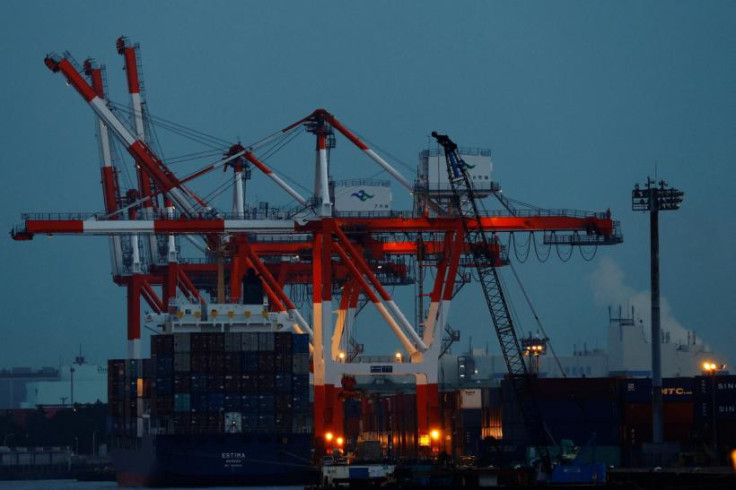Japan's trade gap widens as import costs surge on supply pressures
A weak yen, once considered a boon to the export-led economy, is now having less of an impact as shipments grow smaller, given the ongoing shift by Japanese manufacturers to offshore production.
Japan's exports extended double-digit gains for a third straight month in April, but surging global commodity costs inflated the country's import bill to a record, adding to worries about the rising cost of living.
Shoring up the prospects of a private demand-led recovery, however, was a gauge of capital expenditure that posted its first monthly gain in three months.
The mixed data on Thursday followed the yen's falls to two-decade lows beyond 131 to the dollar earlier in May, which stoked fears of worsening terms of trade and added financial burdens for the resource-poor Japanese economy as import costs soar.
A weak yen, once considered a boon to the export-led economy, is now having less of an impact as shipments grow smaller, given the ongoing shift by Japanese manufacturers to offshore production.
Japan's exports rose 12.5% in April from a year earlier, Ministry of Finance data showed, led by U.S.-bound shipments of cars and undershooting a 13.8% increase expected by economists in a Reuters poll. It followed a 14.7% rise in March.
Imports rose 28.2% in the year to April, versus the median estimate for a 35.0% increase, as a weaker yen helped boost already surging global commodity prices.
"Import gains caused by rising crude oil prices and a weak yen mean a transfer of national wealth to oil-producing nations, depriving Japan of purchasing power," said Takeshi Minami, chief economist at Norinchukin Research Institute.
"As such, Japan's economic recovery depends on coronavirus developments at home and China as the lockdown in Shanghai has disrupted supply-side and consumer activity."
That resulted in a trade deficit of 839.2 billion yen ($6.54 billion), narrower than the median estimate for a 1.150 trillion yen shortfall but posting a ninth straight month in the red.
Analysts have warned of the risks of prolonged cost-push inflation to the fragile economy with external factors, not domestic demand, pushing import bills higher.
Separate data showed on Thursday Japan's core machinery orders rose 7.1% in March from the previous month, versus a 3.7% increase expected by economists in a Reuters poll.
The volatile data series, regarded as a leading gauge of capital expenditure in the coming six to nine months, provided a glimmer of hope for a domestic demand-led recovery.
Japan's economy shrank in the January-March period as COVID-19 curbs hit the service sector and surging commodity prices created new pressures.
($1 = 128.3600 yen)
© Copyright Thomson Reuters 2022. All rights reserved.

This article is copyrighted by International Business Times, the business news leader





